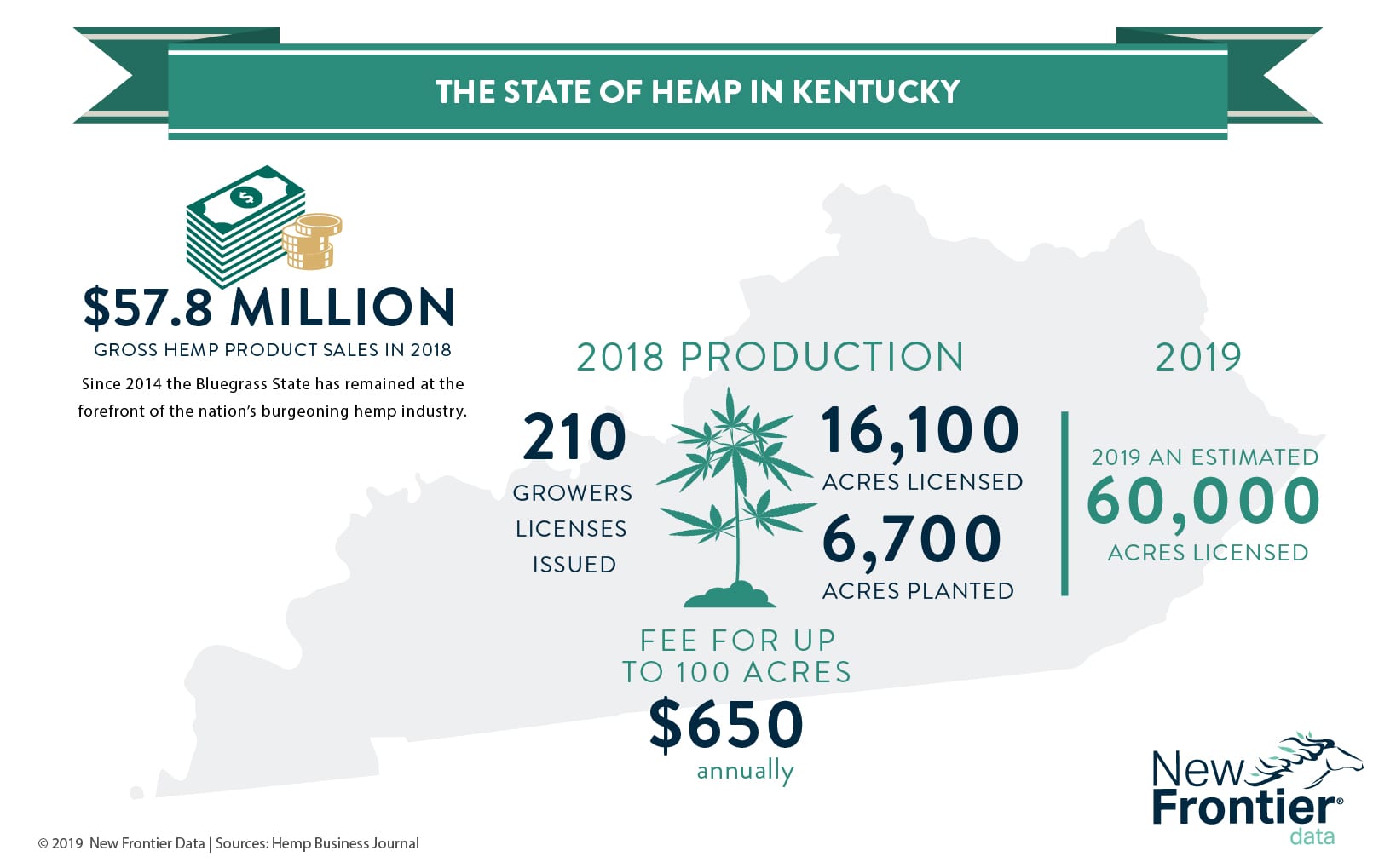Kentucky’s Hemp Stakeholders See Green for the Bluegrass State


For many agricultural states, the boom for hemp and its CBD derivatives has provided an opportunity to revitalize local economies and provide jobs to communities that have been hit hard by recessions, trade wars, and international trade. Kentucky, particularly, has been keen on establishing itself as a global leader in hemp production and is making significant strides towards that goal.
Home to approximately 4.45 million residents, Kentucky is the 26th most-populous state in the U.S. It has been at the forefront of the legal hemp industry ever since U.S. Senate Majority Leader Mitch McConnell (R-KY) introduced a measure into the 2014 Farm Bill to legalize hemp production for research purposes.
With a climate and geography ideal for hemp production, along with a business-friendly atmosphere in its government, Kentucky has been able to attract millions of dollars in investment and enabled itself to establish processing plants throughout the state.
According to McConnell, hemp is growing in 101 of Kentucky’s 120 counties, with $100 million worth of grown and processed hemp products expected to be sold this year.
The Hemp Business Journal’s newly released U.S. Hemp Market 2019 State Rankings details how hemp processors in 2018 spent more than $23.4 million in capital improvements in the Bluegrass State, while farmers received approximately $17.8 million for harvested materials. Last year, Kentucky issued 210 hemp grower licenses, representing approximately 16,100 acres. In 2019 that number has ballooned more than 250%, to about 60,000 acres licensed.
Yet while the state works toward becoming a significant force in hemp, an air of ambiguity hangs over the state’s hemp industry as its regulators struggle to devise clear and unambiguous rules. Though Kentucky features some of the strictest hemp production regulations in the nation, its rules start to get murkier after the crop is harvested.
“For the production of hemp in Kentucky, you have to be tested for THC content, and that’s pretty much it,” says Evan Ogburn, cofounder and owner of Pharm CBD. “You can’t use pesticides, but in terms of testing for contaminants that could come about through cultivation, they don’t really have a set of guidelines for it.”
Pharm CBD is a family-owned business based in Bedford, along Kentucky’s northern border. According to Ogburn, the company was founded in the hopes of providing CBD products with consistent quality, while helping spur economic development in his local community.
“In my hometown, a lot of the agricultural development was driven by Big Tobacco, and that’s been dying over the last five to 10 years,” he said. “The community was in need of a new cash crop, so my family took the risk and the initiative to introduce hemp to our county.”
In addition to not having comprehensive testing guidelines, Ogburn says that the state also lacks a clear CBD policy.
While hemp production is governed by the Kentucky Department of Agriculture (KDA), CBD regulations fall under the purview of the Kentucky Cabinet for Health and Family Services (CHFS), and specifically its Food Safety Branch. Whereas some states like Colorado have taken steps to codify CBD rules through state laws, neither the Kentucky legislature nor the KDA has taken such action.
State regulators may be waiting for federal guidance. Earlier this month, the U.S. Department of Agriculture (USDA) sent draft hemp regulations to the White House Office of Management and Budget for approval. With assurances that the USDA’s rules will be out in time for the 2020 growing season, the draft regulations are expected to be shared for public comment within the next few weeks.
Lawmakers on Capitol Hill are ramping up pressure on the USDA to issue guidance on CBD. McConnell introduced a measure to require the FDA to meanwhile issue temporary guidance while it drafts its final CBD rules.
William Sumner
William Sumner is a writer for the hemp and cannabis industry. Hailing from Panama City, Florida, William covers various topics such as hemp legislation, investment, and business. William’s writing has appeared in publications such as Green Market Report, Civilized, and MJINews. You can follow William on Twitter: @W_Sumner.



